It's both easy and fashionable to render ironic, or scoff at, the title of All's Well That Ends Well. This is the Shakespeare "comedy" in which the rabidly obsessed Helena finally ensnares her none-too-doting Bertram in a putative happy ending that tends to be played as if the pair are advancing toward the gallows. But it's in the way of Shakespeare's Globe in general and the miraculous Globe to Globe season in particular that, as served up by the Arpana theatre company from Mumbai, one of the Bard's three problem plays emerges as both jubilant and touching. And also every bit as colourful as one might expect.
For the troupe's success, credit adaptor Mihir Bhuta and the director Sunil Shanbag, the latter working for the first time in Gujarati (or so I was informed in one of the informal post-show confabs in the Globe's forecourt that have amplified the joys of this season). And honour, as well, the native traditions of the Indian theatre, whose keen embrace of movement and song added enormous weight to the singular quest of the lovesick Helena (known here as Heli) as leading lady Mansi Parekh was able to blossom from a girl to a woman in front of our eyes, a musical soundscape accompanying her every vibrant step of the way. (Three musicians sat to one side, playing harmonium, tabla, and dholak, the last two being the popular Indian hand drums.)
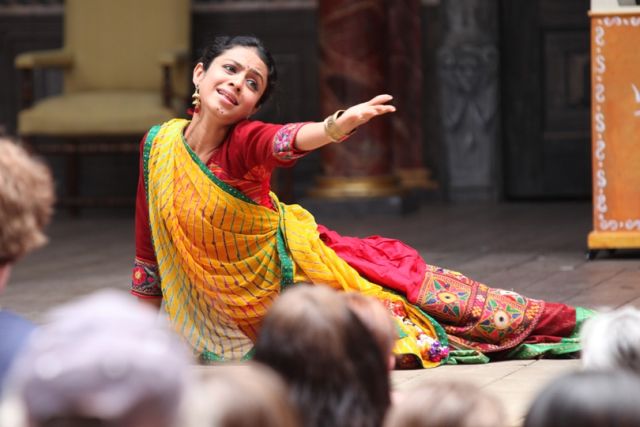 And instead of the elevated world of the French court and the Italian wars that offer an escape valve for Bertram (here called Bharatram) from the predatory Helena, this early 20th-century All's Well moved from the village of Rosali to Bombay and on to Rangoon, the landscape one of mercantilism and the opium trade that nonetheless allowed for the differences in caste that permits Bharatram to cold-shoulder Heli. Always a tricky role given his snobbish impassivity, Chirag Vora's standoffish Bharatram elicited disapproving gasps from the audience as the narrative neared its defining "bed-trick". Then again, Parekh's radiant Heli (pictured above) scooped up all possible sympathy, especially when encouraged to give voice, both spoken and sung, to her cumulative humiliation.
And instead of the elevated world of the French court and the Italian wars that offer an escape valve for Bertram (here called Bharatram) from the predatory Helena, this early 20th-century All's Well moved from the village of Rosali to Bombay and on to Rangoon, the landscape one of mercantilism and the opium trade that nonetheless allowed for the differences in caste that permits Bharatram to cold-shoulder Heli. Always a tricky role given his snobbish impassivity, Chirag Vora's standoffish Bharatram elicited disapproving gasps from the audience as the narrative neared its defining "bed-trick". Then again, Parekh's radiant Heli (pictured above) scooped up all possible sympathy, especially when encouraged to give voice, both spoken and sung, to her cumulative humiliation.
Indeed, the women were granted a pride of place not often found in English-language stagings of this play, Nishi Doshi's Alkini a far more robust figure than Shakespeare's equivalent Diana. Given her own song with which to woo the crowd, Alkini became Heli's genuine ally, not just a plot device on the way to meeting the conditions that will force Bharatram's hand by play's end. And I loved the vigour of Utkarsh Mazumdar's Gokuldas, here not the King of France but a sharp-eyed merchant prince whom Heli cured of tuberculosis in a delicious scene in which Mazumdar circled the stage with gathering energy while Heli fueled him with pills. This same character, we have been told to sizeable laughs from the crowd, didn't think much of English medicine. Not, I would imagine, that he needed it, given the entirely curative tonic that was this show.

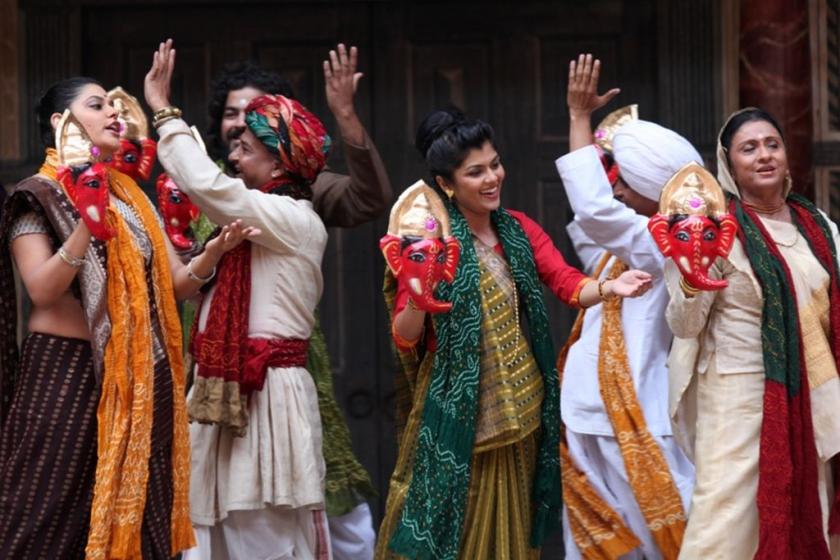





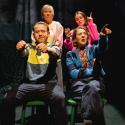





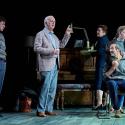
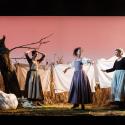
Comments
Add comment